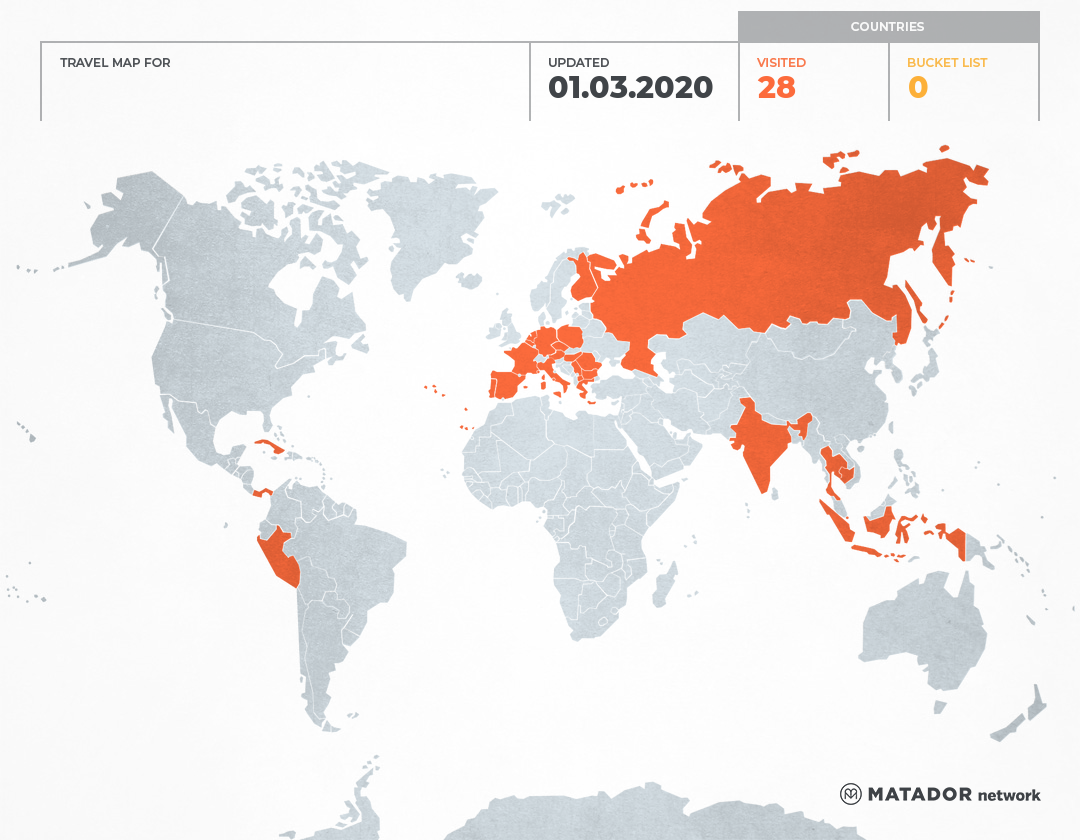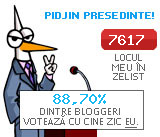For many people, Romania is a country, like so many others, that they know very little or almost anything about. Or probably, they assume they know the country because of all the immigrants that arrive in their cities; they blame them of taking their jobs (but most of the time, immigrants just do the work that locals don't like to do anymore). Or lastly they know a little bit of Romanian's history and the communist era. And this is also how I ended up in this wonderful country with beautiful nature and amazingly hospitable people. About 10 years ago when I was 17, my history teacher asked to write a paper about a historical event or a remarkable person. Not wanting to write aboutNelson Mandela, nor Mother Theresa, as I wanted to discover something else, I asked my mom for some inspiration. She came up with a dictator in the 80ies and his wife had a lot of shoes - but she didn't remember the name. I thought: "Mom, how can I write a paper about this??" But I googled a bit and soon I bumped into Ceausescu. After an interesting research and succesful paper, I wrote in my conclusions that "I didn't know when or how, but once I wanted to go and visit the country to find out if history was still visible and how it had influenced the actual situation in the country". Not knowing that one year later, I would already be in Romania with AIESEC (www.aiesec.com) |
In the summer of 2002, I took off to Bucharest and headed towards Craiova where I took part in the AIESEC round trip "Romania beyond Dracula" (rather than Romania beyond Ceausescu). My first impressions of the country, apart from the shock upon arrival when I met the guards at the immigration office with heavy weapons and the rude customs officer. I didn't feel welcomed at all, luckily my AIESEC friend waited for me outside. After waiting for 6 hours in the airport ofBucharest (because I was so "clever" to book a flight that arrived at midnight, so we had to wait for the first bus to the city centre and the bus to Craiova).
We killed the time with chats about Romania, I translated my tourist guide which was considered by my friend as bad. It seemed that it was written by a person that only knew Transsylvania and had generalised all his experienced for the entire country.
So, not knowing what to expect for the rest, we left the airport at dawn. The busride to the centre was an eye-opener for me as a badly prepared Western tourist. The cars in the street seemed from the time when my grandparents just got married. The Dacia was overruling the streets of Bucharest for the last 5 years. When I got back in 2007, I was shocked again by the rapid evolution of the country, seeing more Porsche Cayenne, Mercedes and BMW than inBrussels.
In the centre, we passed the Presidential Palace built by Ceausescu. While the sun already burnt on our skins and after some bodybuilding exercises with my suitcases filled with chocolate and beers, we took a rest near one of the fountains on the main avenue. At this point, I thought back at the stories that I read to write the paper. All cruelties that happened to build the palace passed as a movie in my head. I burst into tears because of unbelief, I tried to imagine all the houses that were destroyed for the palace. My friend woke me up from my historical thoughts, saying that at Ceausescu's time people were at least sure of the things that they got from the government. The freedom that they gained after 1989 went hand in hand with poverty and uncertainty. So many people preferred to receive very few things instead of being free and left with nothing. This moment was actually one of the sadest I passed in Romania.
As from now on, the discovery of all unknown hidden paradises and charming people could start. I was surprised by the welcoming people whereever I passed. Romanians are very hospitable people. My friend carried my heavy suitcases all over the city, opened the door for me all the time, I - as a guest had to enter the house as the first one, I was even given his room to sleep in for the time I stayed (in total one month). I can't imagine this in Belgium: guys let you struggle with your luggage, the host enters the house first and the guest follows, and the guest is given a spare mattress or an inflateble mattress on the floor most of the times.
Another nice surprise was the delicious food. Oh my god, I rediscovered the real taste of tomatoes compared the perfectly looking vegetables that we find in the supermarkets here. But everything here tastes like water. Every morning, I woke up - went to the garden - picked a tomato and prepared my breakfast. I needed some days to adapt to the salty breakfast with cheese and vegetables, because I only eat bread with chocolate cream in Belgium. There was always one little plate with jam. So the first days I took that on my bread, until I discovered that this was only for your last slice - as a sort of a desert ... Shame on me, but nobody told me anything nor blamed me for my ignorance of the local habits.
And when I got back to Belgium, I asked my mom: do you have tomatoes and cheese. She gave me what she had in the house: a disgusting perfectly looking tomato without taste and some gouda cheese. Also tasteless compared to the good traditional Romanian cheese. It's a bit like feta, but a little different and a pity I can't find it easily in Belgium. Another cheese I really miss is the smoked one. I can go on with my list of delicious foods: raisins, watermelons, meat balls prepared on the barbecue, mamaliga (a side dish made with maize), ... Recently, I was really sad to learn that the tasty vegetables and fruits are threatened by the European Union rules which request perfectly looking stuff of a standard measure and a standard color. I do hope that these people who impose these rules have the chance to taste real food and become more flexible in order to save healthy and tasty food. It's not because an apple has a little brown dot that it's rotten. No, it's because of a little worm - a really intelligent animal that also knows which food is the best! And you will not die of it.
Another tradition in Romania is that you never throw away what is left in a glass. If I left a glass of water or juice half empty, I found it back the day after. On the other hand, if your glass is empty, it's filled immediately. So if you need a break during the palinca or tuica tasting, a local fruit brandy, you are advised to leave a bottom of a glass.
During the trip of "Romania beyond Dracula" some international delegates complained that it was almost everyday pork meat. I didn't mind because I'm quite flexible in food, but it is true that Romanians eat a lot of pork in all shapes, cuts and ways of preparing the meat.
I was also very lucky to participate in the holiday of Saint Mary (August 15th) at the country side. Romanians, being mainly Orthodox, also have a period of fasting before this day and abstain from all kinds of meat. This results in an enourmous party with at least 5 courses, all containing meat. I never as much meat in my life as then. Chicken, meat balls, barbecue on the
ground with some wood and an improvised grill, ... This was real tradition! And of course I had to share the alcoholical beverages too: home-made wine of the countryside, palinca in a special glass so that you don't smell it, because the smell makes you drunk. I was asked to drink it bottom up. Not being used of drinking these types of strong beverages, I was afraid to get drunk immediately, but indeed, I didn't feel anything at all - just my voice dissapeared for a minute because of the high percentage of alcohol (between 40 and 60, but nobody knows exactly, because it's all home-made).
After this day filled with traditions, I experienced once more the Romanian hospitality. The parents of my friend gave me some souvenirs to take home: a beautiful handmade plate and 2 wooden spoons, all heritage of the family. My friend even told me that those were the spoons that he fought for with his cousins and sister when he was at the country-side with his grandparents. I was honoured that they gave me this presents, but on the other hand, these were family pieces that I didn't want to take away from where it belonged to. I thanked the family gently for this present, but said that these things should stay at the countryside. Trying all my best to convince them, they didn't accept this and I had to take the things home. I really cherish this souvenirs and consider them as very special because they are the symbol for me that I was accepted as a family member and they also symbolise the Romanian hospitality.
7 years later, I was invited to the wedding of this friend. But that is another story full of traditions, which I will share with you next time. I can just add that the culinary aspects of a wedding are also particular.
Take care for now, and feel free to share your opinion and experiences or ask me for further explanations at demeulemeesternele@yahoo.com.



















